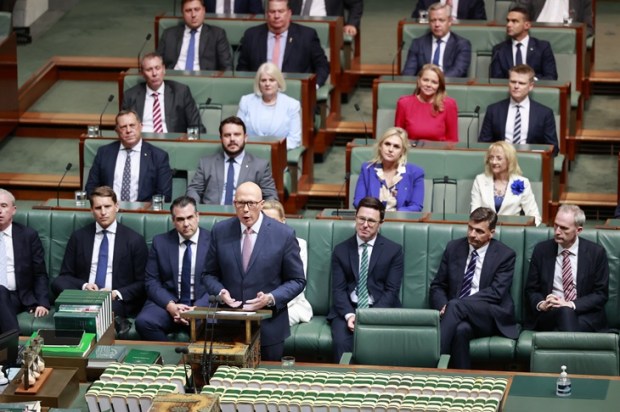There is a glaring lack of enthusiasm for labour market reform coming into the federal election. Yet some maintain that labour market reform is fundamental for our future economic success!
Coalition proposals are limited at present to for example repeal of right to disconnect laws and the definition of casuals and reviewing multi-employer bargaining and same jobs same pay.
The Albanese government is promoting its 1992 Better Pay legislation, which led to wage increases for thousands of workers at Qantas, meat processing, coal mines, and Kmart warehouses using the new ‘same jobs, same pay’ provisions.
There is a reason for the lack of ‘reform’ proposals.
Labour legislation is electorally dangerous if it is seen as ‘cutting worker entitlements.’ As Sir Humphrey Appleby of Yes Minister would say: ‘Very brave Minister!’
The second reason is a progressive Senate not interested in workplace deregulation.
Perhaps a third reason is some rethinking of the conventional economic reform model.
Realism, not fantasy, is needed. All or nearly all first-world countries have minimum wage systems, and systems of trade union bargaining. The US froze their federal minimum wage for decades with the result that there are higher State and city-level minimum wage systems, and three levels of inconsistent regulation.
Everyone wants a productive market economy, with good profits and good wages and conditions. How do you get this?
This is when wild horses run in all directions wildly. Anyone trying to ride them is pulled in all directions. An intellectual straddle is painful or fatal.
Those who watched the September 2022 national trade union/employer summit on the Albanese ALP government Better Pay legislation would have seen a fierce row.
Employers attacked new multi-employer bargaining proposals as strongly as they could, assisted by the Opposition. Trade unions fiercely defended the measures as did the government. The row rumbles on.
What were the issues?
The job of employers in the private sector is to be productive, and to flexibly organise work and hiring and firing.
Employers saw ‘industry’ bargaining as a productivity threat. They remembered the damaging campaigns of the 1970s.
The government and trade unions argued that no such damage would occur, and that the changes would be economically sustainable.
A full list of the disagreements would require a 30-page article and would be repetitive – union claims of worker justice versus employer claims of added costs and inflexibility.
The Albanese legislation passed the Senate, dominated by a progressive crossbench, but was amended.
Who was right in these arguments?
No one agrees. This is where wild horses gallop in all directions. Each side has well-developed research and arguments to sustain its position.
The only way forward may be to go back to the major case of 1995 (The Third Safety Net Adjustment Decision, October 1995), as one example.
We jointly with trade unions developed an agreed structure for reforming awards. I realised that an approach of threatening worker entitlements would not be successful. Trade unions and the ALP would strongly oppose it. We would be banging our heads against the wall once again. As the Commission said in the 1995 decision: ‘After extensive consultation an agreed approach to award format standardisation was reached in early 1995 … it should be noted that these measures concern the form and structure of awards and not award content.’
What followed was an Encyclopedia of argument including statutory forced award simplification. However, thousands of awards were reduced to what are now 121 awards, with a common structure and streamlined language. This largely avoided cutting worker entitlements and some entitlements increased. Old incoherent language from the 1940s or before was removed. A fair amount of enterprise agreement and unfair dismissals laws were agreed in the past.
How do you apply this now?
The thousands of wage rates in awards, for example, could be reduced by removing one classification step, and the remaining ones expanded to cover the area (ie. ‘broadbanding’).
This would be very hard to achieve and would not help business to any great extent. Trade unions would see it as an attack on workers, undermining career progression.
A second approach would be to accept the current approach of promoting trade union bargaining, with modifications.
What modest amendments to make?
Some would like multi-employer bargaining to be heavily restricted. And to repeal ‘same job same pay’ laws. That would be attacked by the ALP and unions for leaving a ‘loophole’ of an employer able to pay workers different pay even if they do the ‘same work.’ Multi-employer bargaining is not yet heavily used. Employers will reply to this effectively.
A formal review of the Act could be instigated by a new Coalition government. However, the debate is so polarised that this would be dismissed as ‘the enemy talking to itself’.
But an independent tripartite review has the possibility of bringing all policy perspectives into play, corralling all the wild horses. A tripartite review involves both trade union and employer membership of the review committee.
Alternatively, tripartite discussions could take place through a committee chaired by the Minister, which on occasion has worked well. All measures would need to be discussed before Government announcement, and no attempt to remove the agreement test against awards should be taken.
A review would focus on practical problems and agreement and for example small business. A 30-page list of modest proposals could be developed. I have my own. In the past useful reforms to agreement procedures and unfair dismissal laws have been cobbled together at such meetings.
The failure of legislation under the Morrison government, and a progressive Senate, suggest Coalition difficulty without a conciliatory approach. There may be a row about restoring the construction industry ‘watchdog’.
A reformist ALP government also might be interested in modest improvements. In the past, they undertook major reforms such as the introduction of enterprise bargaining in 1991.
There are no guarantees of success.
But one way to avoid banging your head against the wall is to stop banging.
Reg Hamilton, Adjunct Professor, School of Business and Law, Central Queensland University

























